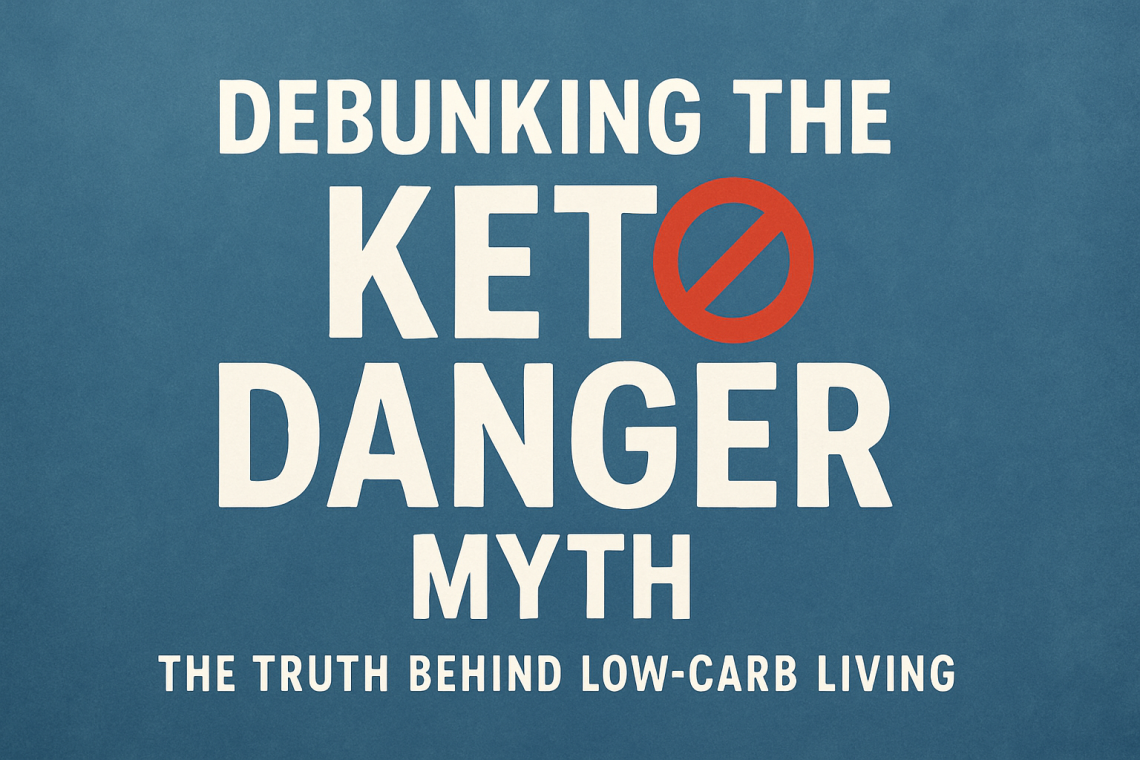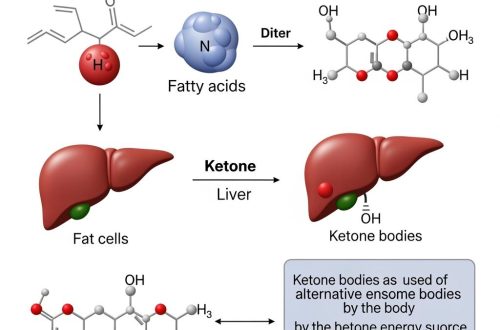As someone who has extensively researched nutritional science and metabolic health, I’ve watched the keto debate unfold with great interest. The truth, as is often the case with nutrition, lies somewhere between the extremes. While the ketogenic diet isn’t the dangerous fad that some critics claim, it’s also not a magical solution for everyone. Let’s dive deep into the science and separate fact from fiction.
Understanding the Ketogenic Diet
Before we can address the myths, we need to understand what the ketogenic diet actually entails. At its core, keto is a high-fat, moderate-protein, very low-carbohydrate eating pattern that typically restricts carbs to 20-50 grams per day. This dramatic reduction in carbohydrates forces the body to shift from using glucose as its primary fuel source to burning fat and producing ketones for energy—a metabolic state called ketosis.
This isn’t just another weight loss trend. The ketogenic diet was originally developed in the 1920s as a treatment for epilepsy in children who didn’t respond to medication. For nearly a century, it has been successfully used in clinical settings, which should immediately challenge the notion that it’s inherently dangerous.
Myth #1: Ketosis is the Same as Ketoacidosis
Perhaps the most persistent and damaging myth is the confusion between nutritional ketosis and diabetic ketoacidosis. These are fundamentally different metabolic states, yet the similarity in names has created unnecessary fear.
Nutritional ketosis typically produces blood ketone levels between 0.5-3.0 mmol/L, which is a controlled and beneficial state for most healthy individuals. Diabetic ketoacidosis, on the other hand, involves dangerously high ketone levels (often above 10 mmol/L) combined with high blood sugar and is a medical emergency that occurs primarily in people with type 1 diabetes who have insufficient insulin.
For individuals without diabetes, the body has multiple regulatory mechanisms that prevent ketone levels from reaching dangerous heights. Comparing nutritional ketosis to ketoacidosis is like comparing drinking water to drowning—both involve water, but the context and quantity make all the difference.
Myth #2: The Brain Needs Carbs to Function
Critics often claim that the brain requires 130 grams of carbohydrates daily to function properly. While it’s true that the brain typically uses glucose as its primary fuel, this argument overlooks the remarkable adaptability of human metabolism.
During ketosis, the brain efficiently uses ketones for up to 70% of its energy needs. The remaining glucose requirements are easily met through gluconeogenesis—the body’s ability to create glucose from non-carbohydrate sources like protein and fat. This metabolic flexibility is an evolutionary adaptation that allowed our ancestors to survive periods of food scarcity.
Research has shown that many people report improved mental clarity and focus once they adapt to ketosis. Studies on the neuroprotective effects of ketones have even led to investigations into using ketogenic diets for conditions like Alzheimer’s disease and other neurodegenerative disorders.
Myth #3: Keto Causes Heart Disease
The concern that a high-fat diet inevitably leads to heart disease stems from outdated nutritional dogma. Modern research has revealed a much more nuanced picture of dietary fat and cardiovascular health.
Multiple studies have shown that well-formulated ketogenic diets can actually improve cardiovascular risk markers. A 2020 meta-analysis published in the journal Nutrition Reviews found that ketogenic diets led to significant improvements in HDL cholesterol, triglycerides, and blood pressure. While some individuals may see an increase in LDL cholesterol, the pattern typically shifts toward larger, less atherogenic particles.
The key is focusing on healthy fat sources like olive oil, avocados, nuts, and fatty fish rather than processed foods. Quality matters more than macronutrient ratios when it comes to heart health.
Myth #4: Ketogenic Diets Damage the Kidneys
The belief that high-protein intake damages healthy kidneys has been thoroughly debunked, and ketogenic diets aren’t even particularly high in protein. The moderate protein intake (typically 20-25% of calories) on a well-formulated keto diet is well within safe ranges for individuals with healthy kidney function.
Research has shown no adverse effects on kidney function in healthy individuals following ketogenic diets. In fact, some studies suggest that reducing carbohydrate intake may benefit certain kidney conditions by lowering blood sugar and reducing inflammation.
The Science of Metabolic Adaptation
Understanding why these myths persist requires examining how the body adapts to ketosis. The transition period, often called the “keto flu,” can involve temporary symptoms like fatigue, headaches, and irritability as the body shifts fuel sources. This adaptation phase, typically lasting 1-2 weeks, is often misinterpreted as evidence that the diet is harmful.
In reality, these symptoms result from electrolyte imbalances and the body learning to efficiently produce and use ketones. Once adapted, most people report stable energy levels, reduced hunger, and improved metabolic markers. The human body’s ability to thrive on different fuel sources is a testament to our evolutionary resilience, not a sign of danger.
Evidence-Based Benefits
While addressing myths is important, we should also acknowledge the growing body of research supporting ketogenic diets for various health conditions. Beyond the well-established benefits for epilepsy, studies have shown promising results for weight loss, type 2 diabetes management, metabolic syndrome, and even certain cancers.
A 2019 review in the International Journal of Environmental Research and Public Health analyzed multiple studies and found that ketogenic diets consistently outperformed low-fat diets for weight loss and metabolic health markers. The appetite-suppressing effects of ketosis can make calorie restriction more sustainable for many people.
Legitimate Considerations
Being honest about the ketogenic diet means acknowledging that it’s not appropriate for everyone. Certain populations should approach keto with caution or avoid it entirely, including pregnant and breastfeeding women, individuals with certain metabolic disorders, and those with a history of eating disorders.
Additionally, the quality of food choices matters tremendously. A diet of processed “keto” products and excessive saturated fat is vastly different from one emphasizing whole foods, vegetables, and healthy fats. The commercialization of keto has led to many products that technically fit the macronutrient profile but miss the point of metabolic health.
The Path Forward
The demonization of the ketogenic diet reflects broader issues in nutrition science communication. Extreme positions generate headlines but rarely reflect the nuanced reality of human metabolism. The truth is that ketogenic diets, when properly implemented, are safe and effective for many people—but they’re not magic, and they’re not for everyone.
If you’re considering a ketogenic diet, approach it with education and preparation. Work with healthcare providers who understand metabolic health, focus on whole foods, ensure adequate electrolyte intake, and listen to your body. The goal should always be long-term health and sustainability, not quick fixes.
The human body is remarkably adaptable, capable of thriving on various dietary patterns. The ketogenic diet is simply one tool in the toolkit of metabolic health—neither as dangerous as critics claim nor as universally beneficial as zealots suggest. By moving past the myths and embracing evidence-based nutrition, we can make informed decisions about our health without falling prey to fear-mongering or false promises.
As we continue to learn more about human metabolism and nutritional science, one thing becomes clear: the danger isn’t in the ketogenic diet itself, but in the oversimplification and misrepresentation of complex biological processes. The truth about low-carb living is far more interesting—and far less scary—than the myths would have us believe.





